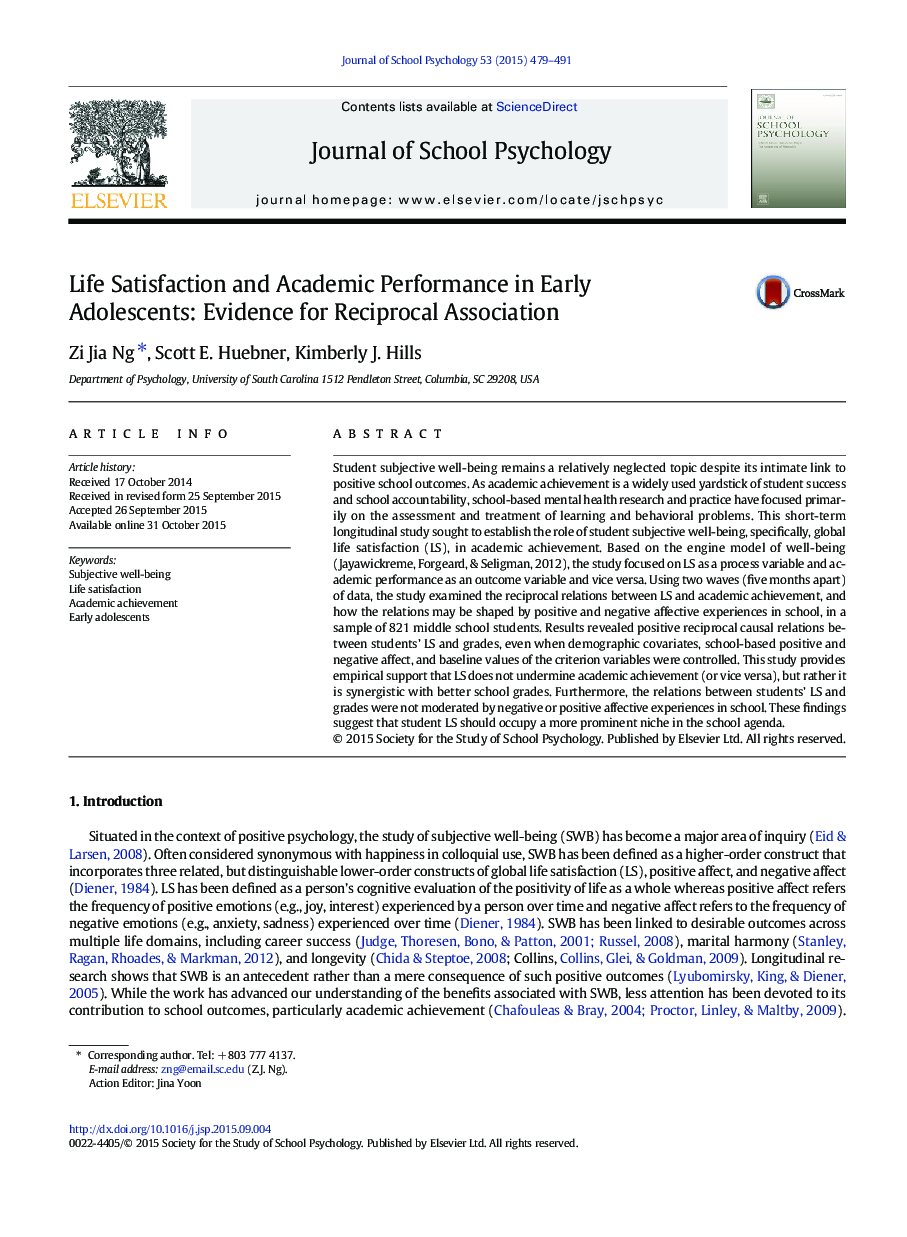| Article ID | Journal | Published Year | Pages | File Type |
|---|---|---|---|---|
| 363450 | Journal of School Psychology | 2015 | 13 Pages |
Student subjective well-being remains a relatively neglected topic despite its intimate link to positive school outcomes. As academic achievement is a widely used yardstick of student success and school accountability, school-based mental health research and practice have focused primarily on the assessment and treatment of learning and behavioral problems. This short-term longitudinal study sought to establish the role of student subjective well-being, specifically, global life satisfaction (LS), in academic achievement. Based on the engine model of well-being (Jayawickreme, Forgeard, & Seligman, 2012), the study focused on LS as a process variable and academic performance as an outcome variable and vice versa. Using two waves (five months apart) of data, the study examined the reciprocal relations between LS and academic achievement, and how the relations may be shaped by positive and negative affective experiences in school, in a sample of 821 middle school students. Results revealed positive reciprocal causal relations between students’ LS and grades, even when demographic covariates, school-based positive and negative affect, and baseline values of the criterion variables were controlled. This study provides empirical support that LS does not undermine academic achievement (or vice versa), but rather it is synergistic with better school grades. Furthermore, the relations between students’ LS and grades were not moderated by negative or positive affective experiences in school. These findings suggest that student LS should occupy a more prominent niche in the school agenda.
